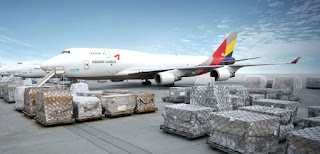International Freight Forwarding in USA
International Freight Forwarding in USA is a vital aspect of global trade and logistics. It involves the coordination and management of various processes associated with the transportation of goods across international borders. Freight forwarders act as intermediaries between shippers and carriers , helping to streamline the movement of goods while ensuring compliance with customs regulations and other requirements.
Here are some key points about international freight forwarding in the USA:
Services Provided: Freight forwarding companies offer a range of services, including booking cargo space, arranging for transportation, preparing shipping documentation, customs clearance, cargo insurance, and tracking shipments. They serve as a one-stop solution for businesses looking to transport goods internationally.
Documentation and Compliance: Freight forwarders assist in preparing and processing the necessary shipping documents, such as bills of lading, commercial invoices, packing lists, and certificates of origin. They also ensure compliance with customs regulations and import/export laws of both the origin and destination countries.
Transport Modes: Freight forwarders can coordinate shipments using various transportation modes, including air freight, ocean freight, road transportation, and rail freight. They choose the most appropriate mode based on factors like cost, transit time, and nature of the goods.
Carrier Selection: Freight forwarders work with a network of carriers to secure transportation options that best suit their clients' needs. They negotiate freight rates, schedules, and terms on behalf of their customers.
Cargo Insurance: Freight forwarders often provide cargo insurance options to protect the goods against damage, loss, or theft during transit. This ensures that businesses have financial protection in case of unforeseen events.
Customs Clearance: One of the critical roles of freight forwarders is to facilitate customs clearance processes. They ensure that all required customs declarations and documentation are accurately completed, helping to avoid delays and penalties.
Supply Chain Management: Some freight forwarders offer supply chain management services, which involve optimizing the movement of goods from the point of origin to the final destination. This includes inventory management, distribution, and order fulfillment.
Technology Integration: Many modern freight forwarders utilize advanced technology and digital platforms to provide real-time tracking, online booking, and streamlined communication between different parties involved in the shipping process.
Regulations and Compliance: International trade involves complex regulations and compliance requirements. Freight forwarders stay updated with changing regulations to help businesses navigate trade barriers and restrictions effectively.
Global Network: Established freight forwarding companies have a vast network of agents and partners around the world. This network ensures seamless coordination and reliable services across various countries and regions.
It's important for businesses to choose a reputable and experienced freight forwarder that can meet their specific international shipping needs. The freight forwarding industry is regulated, and many forwarders belong to industry associations that help uphold ethical and professional standards. Always research and verify the credentials and reputation of a freight forwarder before entering into any agreements.

.jpg)
.jpg)
Comments
Post a Comment